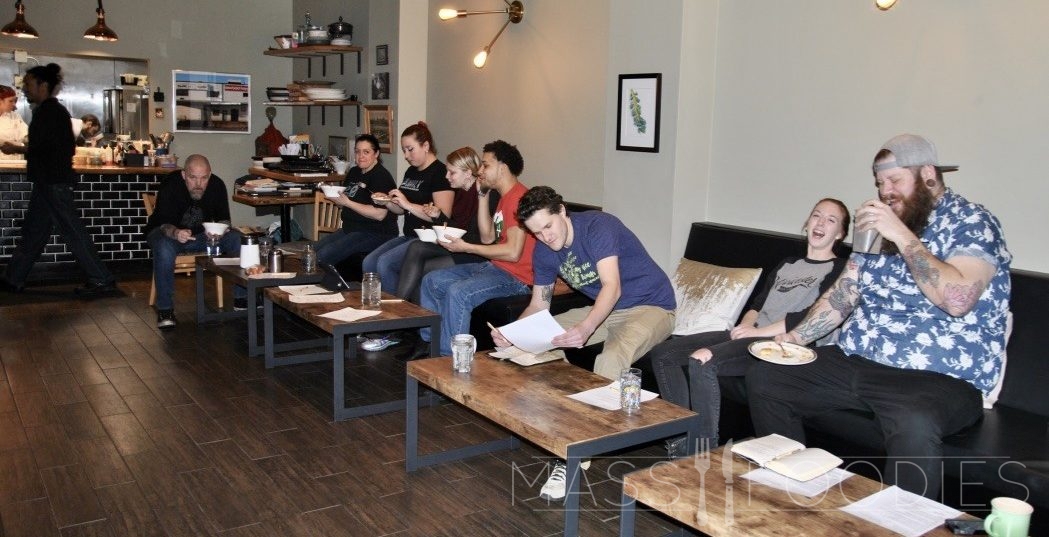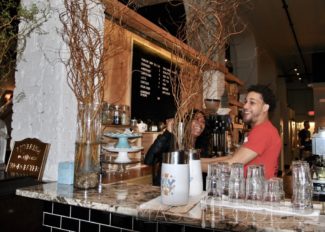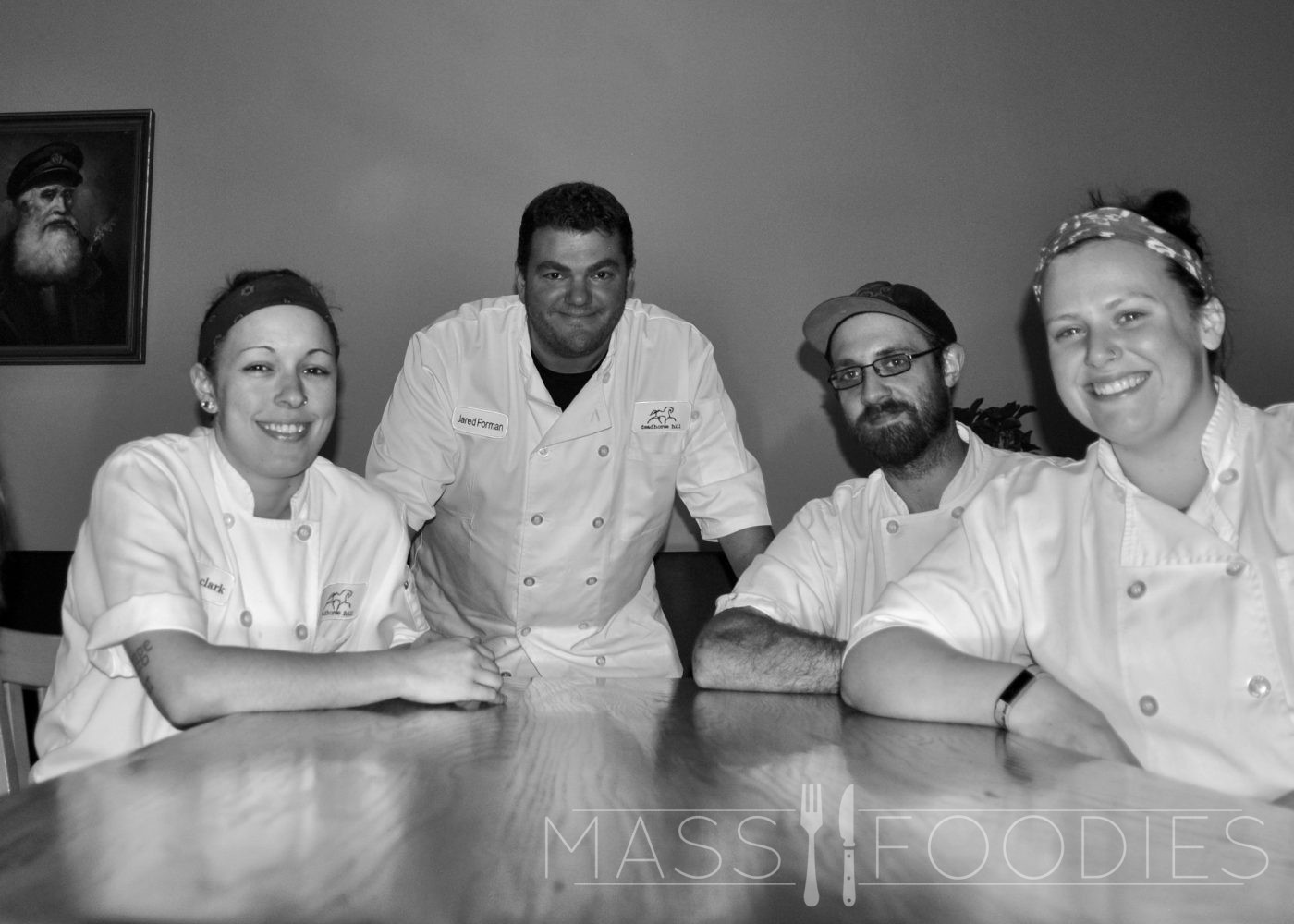
It’s 3:36 and deadhorse hill’s Executive Chef Jared Forman is crouching down at the end of the bar, eyeing the alignment of each water glass for precision. “Can someone please straighten these out?” he asks, striding to the front of the dining room and pausing before a towering flower vase near the windows. “The water needs to be changed when you have a moment,” he tells the two hosts who are hard at work, reviewing the evening’s reservations on a tablet. He tugs at a napkin until it is square with the edge of the table before completing another lap of the floor to make sure everything is just right for service.

Co-owner Sean Woods is doing his best to get menus printed on time. “We change the menus often. Like, every day,” Forman tells me. But, today, the restaurant’s printer is on the fritz and Woods is pressed for time. In 86 minutes, every seat in the house will be full, but he seems entirely unfazed. Years of bartending have granted him composure. Woods offers me a cup of coffee before darting off to a local office building where he has called in a favor to get the menus printed in time for family meal. I am here to observe how Worcester’s prize restaurateurs prepare for a busy night and it has turned out to be nothing short of a spectacle.
Woods and Forman have both worked in plenty of restaurants where the front of house staff would be expected to arrive at 4:45 for a 5 o’clock shift, leaving no opportunity to “get on the same page” with one another. The duo knew from the start that they wanted deadhorse hill to be more team oriented than any of the other spots where they had worked. As a result, the staff sits down together every day at 4 o’clock to share a meal and find out what’s in store. “We get the time to just breathe together. Everybody needs to have that moment of zen where we’re all doing exactly the same thing at the same time. Only then we can move into service,” Woods explains.
Forman sees the value of family meal as two-fold. First, it’s about creating unity. “We want to make sure that everyone has a chance to sit down and eat together so that they feel like part of a family. Food is obviously why we’re in this business. It brings us all together,” he says. Tonight, everyone helps themselves to heaping plates of biscuits and gravy. They sip soda water from plastic quart containers and pullout bound notebooks filled with detailed scribbles.
Second, Forman and Woods use this time to educate their team. “My job is to give the staff the most knowledge possible about what each product is, where it’s coming from, all of the ingredients, and how we prepare it. They need a quick and succinct way to explain it to the guests, which is what we call our dropline,” Forman says. He knows that It is impossible for customers to look at most of his dishes and simply identify what is in front of them. Droplines account for the short, spirited descriptions communicated by the staff throughout one’s meal. Everything that hits the table offers a surprise and Forman never wants dining to feel robotic for his guests.
Robots aside, technology has taken on a crucial role for improving guest services. The front of house staff uses Reserve, a table management and restaurant reservations platform, to predict how quickly tables will turn and to record customer preferences. “Everybody knows when Bert and Anna come in, they love to sit at 63,” Forman reminds his team during staff meal, encouraging them to diligently review guests’ histories within the system.
“Is it their first time? Their birthday or anniversary? Do they have allergies, likes, or dislikes?” Woods adds.
By 4:47, customers are already streaming through the door, infiltrating the bar in anticipation of their 5 p.m. tables. Manager, Julia Auger strategically doles out positions. The staff tuck their notebooks away and disperse. I take advantage of the brief interlude to ask Forman and Woods what sort of information they have stored in the Reserve system about me, but they make a joke of it, hesitating to reveal everything behind the curtain.
When I sit down for dinner at 5:17, the chef sends out fat Cape Neddick oysters with a pickled ginger and pink peppercorn mignonette, followed by a velvety blue crab bisque with lemongrass aromatics and French style butter toasted sourdough croutons. I still haven’t a clue what Reserve’s discerning algorithm has to say about me, but if this spread is any indication, it seems to be on the right track. I watch bar customers lift water glasses to their lips and place them down haphazardly, oblivious to the meticulous curation that has occurred in deadhorse hill’s dining room all afternoon. It is, in fact, a marvel how Forman and Woods have managed to make sophisticated dining feel so effortless. The invisible and tireless attention to detail in the front of the house will no longer be lost on me.

